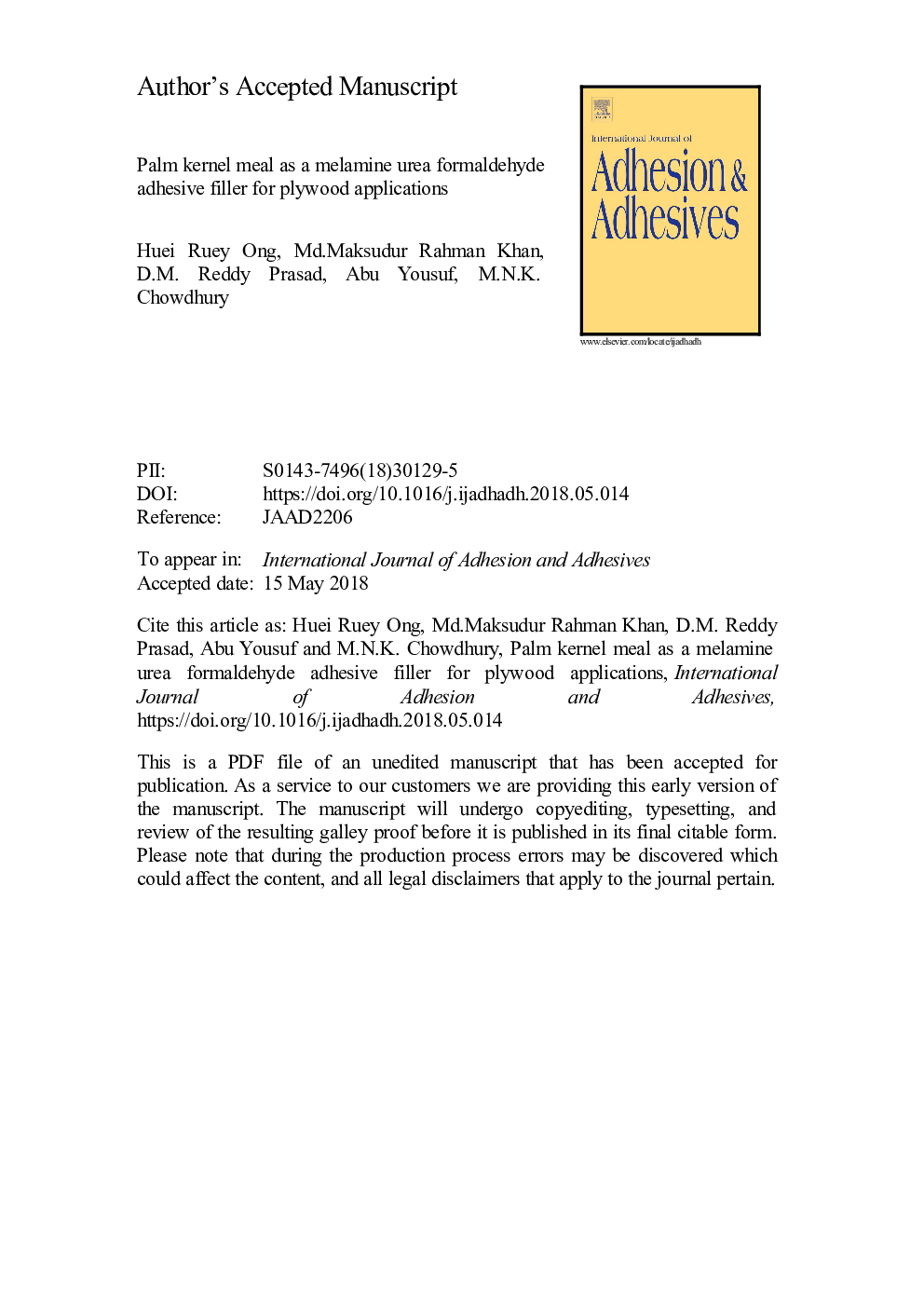| Article ID | Journal | Published Year | Pages | File Type |
|---|---|---|---|---|
| 7170840 | International Journal of Adhesion and Adhesives | 2018 | 28 Pages |
Abstract
In this work, palm kernel meal (PKM) and palm shell (PS) were studied as a filler for wood adhesive formulations and their efficiency was compared with existing industrial flour (IF). Melamine urea formaldehyde (MUF) was used as resin for formulating the wood adhesives. The effects of the natural fillers (PKM and PS) on shear strength and formaldehyde emission of plywood were analyzed. The optimum hot press temperature and time were found to be 125â¯Â°C and 150â¯s, respectively. Both PKM and IF influenced the shear strength and formaldehyde emission characteristics, with the optimum concentration of filler being within the range of 13% to 18%. The physico-chemical interaction between the wood, resin and filler was investigated using Fourier transform infrared spectroscopy (FTIR) and the interactions among CËO groups on PKM and NâH, OâH groups on wood and MUF were identified. Apart from the bonding strength, the mechanical interlocking between adhesive and wood was found to be very important for adhesive performance which was dependent on the viscosity of the adhesive which in turn was controlled by the filler concentration. The wood -adhesive interface was examined using light microscopy (LM).
Related Topics
Physical Sciences and Engineering
Engineering
Mechanical Engineering
Authors
Huei Ruey Ong, Md. Maksudur Rahman Khan, D.M. Reddy Prasad, Abu Yousuf, M.N.K. Chowdhury,
